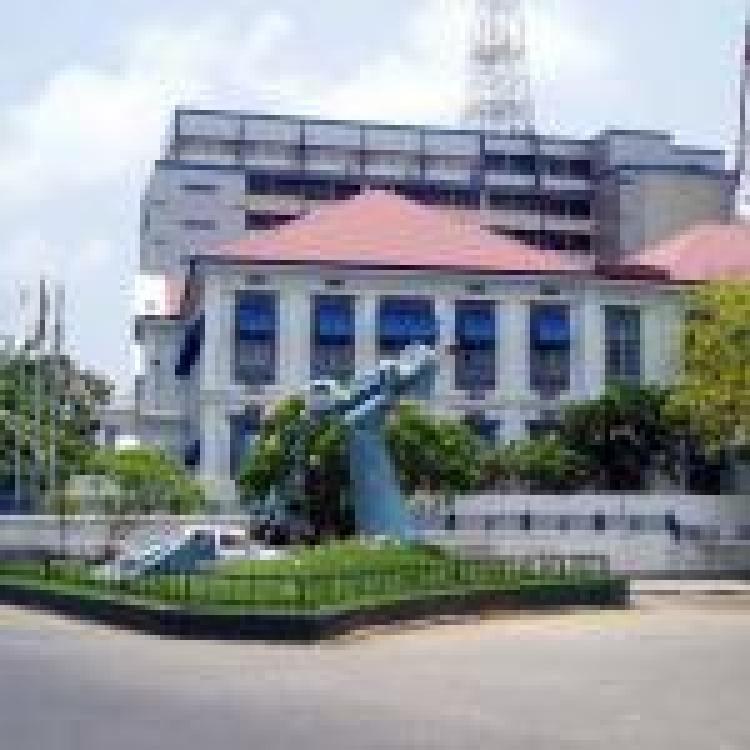
The Sri Lankan Court of Appeal has issued an interim order that will see the suspension of further steps in the divesture of sales in both the state-owned Sri Lanka Telecom and Lanka Hospitals until the next court date. The Petitioners are the owners of Lycamobile who had submitted its bid to buy 50% shares in the Telco earlier this year.
Lyca was barred from qualifying, which dealt a blow to the management headed by Subaskaran Allirajah who has shown interest in several business entities in the country.
Lyca was one of the three investors who had expressed interest in the sale of Sri Lanka Telecom shares, the island’s State-Owned Enterprises Restructuring Unit said. Pettigo Comercio International a front for the Lycamobile group had submitted its interest through the NDB Investment Bank Ltd. Pettigo Comercio Internacional Lda Subaskaran’s company is owned by Subaskaran's wife, Prematharshini Subaskaran.
Two writ petitions were taken up for hearing in the presence of Appeal Court judge D.N. Samarakoon. The petitioner companies informed the court they had submitted applications regarding the transfer of 50.23% shares of Sri Lanka Telecom and 51.34 % shares of Lanka Hospitals. They allege that the Cabinet Committee overseeing the restructuring of the state enterprise rejected their applications without providing reasons. The petitions argued that the decision of the Cabinet sub-committee to reject the applications was arbitrary and unfair deeming it a violation of the law.
After taking into account the submissions, the Court arranged to issue notice instructing Finance Minister Ranil Wickramasinghe, State Minister for Finance Shehan Semasinghe, members of the Cabinet Sub-Committee for the restructuring of public enterprises, and the Attorney General, who have been named as respondents in the petition, to present their arguments on March 12th.
Last year, the Treasury decided to divest the government’s 50.23% shares it held with Sri Lanka Telecom through an open competitive bidding process. While the reasons for the disqualification have yet to be openly stated, Lyca had been informed that they failed to qualify. This is a blow to Lyca which has been showing keen business interest in multiple entities. Lyca already owns the Jaffna King’s cricket team playing in the Lanka Premier League alongside other substantial shares in other businesses.
Entertainment industry
Key amongst these is a 40% stake of EAP Broadcasting Limited. EAP's media arm owns two television stations and three radio stations including Swarnawahini, Shree FM, RanOne and E FM. Subaskaran also owns Ben Holdings and the EAP group of companies, having acquired around 18 local movie theatres.
Subaskaran has made significant investments in the entertainment industry. He also owns Lyca Productions, which promotes and invests in productions of South Indian Tamil movies and more recently, Sinhala and Tamil movies in Sri Lanka.
Last year, Sri Lanka’s Minister of Mass Media Bandula Gunawardana said the state-run Rupavahini Corporation will also be leasing airtime of its Channel Eye to the Lyca group to recoup a series of losses. “A few hours of airtime would be leased to Lyca group for cricket broadcasts for which 25 million rupees would be charged for a month,” Gunawardana said. “At the moment it is making losses and cannot even pay the electricity bill.”
Court cases
Last year, Lycamobile's former CEO was convicted and ordered to pay a fine of €10 million after being found guilty of money laundering and fraud by a French court just weeks after the company launched a Sri Lankan production arm looking to boost Sinhala-language cinema.
The verdict in the Parisian court comes after years of controversial practices by the multimillion-dollar company, which is reported to have links with the war crimes accused Rajapaksa family in Sri Lanka. The French decision comes after the company’s movie-making wing, Lyca Productions, launched its arm in Sri Lanka.
The company's activities in Sri Lanka have frequently the ire of Sinhala trade unions and extremist monks.


